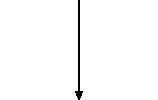


Era of Good Feeling






1839 Liberty Party
1848 Free-Soil Party
1854 American Party

In order to truly understand history, one must be able to grasp details such as political parties. They might not seem important at first glance, but what the parties stand for is always reflective of the era in which it was created. However, parties by their very nature create disunity ammoung the citizens. George washington saw this and warned against them in his Farewell Address, but not even the he could stop this force. For most of US History, there has been a two-party system (minus the Era of Good Feeling). It endures to this day, though the parties have changed. The evolution of the political party tells part of the story, and to understand it is to better understand history. As always, if you find any problems, typos, discontinuities, etc., please email me.
| 1791-1793 | Federalists | Democratic-Republicans | |
|---|---|---|---|

|

|
||
| 1816 | Death of Federalists | ||

|
|||
| 1817-1825 |
Republicans Era of Good Feeling |
||

|

|
||
| 1825-1829 | National Republicans | Democratic-Republicans | |

|

|
||
| 1834 | Whigs | Democrats | |

|

|
1839 Liberty Party
1848 Free-Soil Party |
|
| 1854 | Republicans |
1854 American Party |
|

|
|
||
| Present | Present | ||
| Date | Party | Chief Issues |
|---|---|---|
| 1867 | National Prohibition | Prohibition of Alcoholic Beverages |
| 1872 | Liberal Republican | Elimination of Political Corruption |
| 1875 | National Greenback | Inflation through Paper Money |
| 1891 | Populist | Inflation through Silver |
| 1901 | Socialist | Government Ownership of Means of Produciton and Distribution |
| 1912 | Progressive | Economic, Political, and Social Refrom |
| 1920 | Farmer-Labor | Economic and Social Reform |
| 1924 | Progressive-Socialist | Economic, Political, and Social Reform |
| 1948 | Progressive | Opposition to Truman's Foreign Policy |
| 1948 | States' Rights Democrats | Opposition to Federal Civil Rights Bill |
| 1971 | Liberatarian | Free market, free trade, and strong civil liberties |
| 1984 | Green | Ecology, social justice, Grassroots Democracy, and non-violence |
| 1999 | Constitution | American laws originate from the Holy Bible |
NOTE:
Neither chart is not my original work. they were taken from _____
and hyperlinks were incorporated into it.
An early political party headed by Alexander Hamiltion and John Jay. Its members provided the much needed push to ratify the Constitution, especially in New York. In order to influence New Yorkers, Hamilton, Jay, and Madison, wrote the Federalist Papers.
In general, Federalists were members of the aristocracy (merchants, govenors, people of power) in favor of Loose Construction, active (large, controlling government, and an active treasury. They also favored a pro-british foreign policy, which would later play a role in the War of 1812.
Presidents
1789-1797 George Washington (01) (considered) - claims to be nonpartisan
1797-1801 John Adams (02)
After the War of 1812, the Federalists were riddiculed and labled as unpatriotic due to their actions during the war. This included trading with the British and the issues discussed and voted upon during the Hartford Convention.
The Hartford Convention was the meeting of Federalists (representative of the New England states) in Hartford, Connecticut. The motive for this meeting was obviously rage. Why would the entire country go to war when only around half of the population wanted it anyway? Remind you of any current event? Their ships were being attacked (Chesapeake Incident) and their sailors impressed. Yet they hadn't complained. The war was completely destroying their trade. Surely, if they hadn't wanted the war, it simply shouldn't have occurred. Therefore, the subject of the convention was the defense of the country and states' rights.
It was proposed that amendments be added to the Constitution which included the following provisions:
Of course, when the rest of the country realized what the Federalists had been doing during the signing of the Treaty of Ghent and the Battle of New Orleans, the bomb dropped, and the Federalists never recovered. They ceased to be a threat, resulting in only one political party and the Era of Good Feeling.
Early political party headed by James Madison and Thomas Jefferson. They favored Strict Construction and a smaller, less threatening federal government. The party was popular with the poor, especially the agrarian southerners. The party was also Pro-French, which resulted in support for a war against Britian (War of 1812). The War Hawks came from this party.
Presidents
1801-1809 Thomas Jefferson (03)
1809-1817 James Madison (04)
1817-1825 James Monroe (05)
1825-1829 John Quincy Adams (06)
This was the single party of the Era of Good Feeling. It was the continuation of the Democratic-Republican party, the only one left after the War of 1812. However the party was renamed the National Republican Party until 1934, when it's remnants became the Whig Party.
Era of Good Feeling'Term used to describe the national mood of the united States in the 1810's and 1820's.' (Rutgers) The period lasted from the death of the Federalist Party to the recreation of the Democratic-Republican Party under Andrew Jackson. There was only one party in the United States, which was Republican. Besides the political unity, Americans felt more at ease with their place in the world. 'They worried less about foreign intervention.' (Rutgers)
'Short-lived party opposed to Andrew Jackson in the election of 1828. The party was actually composed of a wide variety of people from farmers to merchents, poor to wealthy. All of these people had something to gain from Henry Clay and his American System. They therefore nominated him as their candidate instead of the incumbent Republican, John Quincy Adams.' (infoplease)
The creation of this party ended the Era of Good Feeling. Its members are also sometimes called Jacksonian Democrats (With all the Democrats and Republicans, the names of these parties can get a little confusing) or the party of the common man. It was a firm advocate of States' Rights and was supported by farmers and other common folk everywhere, because it helped usher in the Age of the Common Man (Age of Jackson).
Presidents
1829-1837 Andrew Jackson (07)
1837-1841 Martin Van Buren (08)
Party formed in opposition to what many (especially aristocrats) considered to be, Jackson's tyrannical rule and equally detestable policies. 'There were many factions of the party with their own agendas, but they were all united by their loathing of Jackson.' (Encarta) The old National Repbublican, Free Soil, and several other smaller parties were absorbed under the heading of Whig.
Presidents
1841 Wiliam Harrison (09)
1849-1850 Zachary Taylor (12)
1850-1853 Millard Fillmore (13)
This party is actually the extention of the Democratic-Republican party under its shortened name, the Democrats. I've seen a couple articles that disagree as to when the name was shortened. Some say 1828, some say later. 'At any rate, the party continued to advocate a the use of power in foreign affairs to protect national interests, but social and economic issues were downplayed. They also heartily believed that State and local governments should control everything that they could. The national government should not interfere.' (Encarta) They can therefore be seen as a States Rights party.
During the 1850's, Stephen Douglas proposed the idea of Popular Sovereignty which caused a small rift in the party. 'However, because of the demands by Southerners for slavery's protection and expansion, Northern Democrats, opposed to slavery, became dissolusioned with the southern party.' (Encarta) This led to Abraham Lincoln becoming president and the subsequent outbreak of the Civil War.
'The Civil War made the Democrats most unpopular, because their policies were nearly opposite those needed to wage effective war. Increasing central power, a draft, and limiting freedoms were necessities, something the Democrats failed to understand. This "Disloyalty" hurt them badly during the war and afterwards.' (Encarta) 'This was largely due to a practice known as "waving the bloody shirt," a practice named after a specific incident in Julius Caesar, the play by William Shakespeare. In a scene towards the end of the play, Marc Antony shows the citizens of Rome the bloody and torn Toga of their assassinated leader to incite rage and violence against Brutus and his coconspiritors.' (GAHFF) This relates to the Democrats in that they were seen as the equivalents of the ancient conspirators.
After the rather unsucessful 1920's, during which Republicans remained firmly entrenched in the White House, the Democratic Party began to go through "the change." FDR the immensely popular and charismatic president (also my favorite if you haven't noticed) began to experiment with the New Deal. Since that time, the Democratic Party has advocated a strong central government, economic equality, and social justice (A little later for this one).
Today, the party stands for...well, not much. The Democrats' refual to take a firm stand on issues such as Gay Rights, economic policies, and war let the Republicans Slide to victory in the 2004 election. Democrats have been trying to leech off the moral issues the Republicans champion. That has been completely unsuccessful and they end up looking like a bunch of old codfish. That's why I'm proud to be an Independent.
Presidents
1841-1845 John Tyler (10)
1845-1849 James Polk (11)
1853-1857 Franklin Pierce (14)
1857-1861 James Buchanan (15)
1865-1869 Andrew Johnson (17)
1885-1889 Grover Cleveland(22, 24)
1913-1921 Woodrow Wilson (28)
1933-1945 Franklin Roosevelt(32)
1945-1953 Harry Truman (33)
1961-1963 John Kennedy (35)
1963-1969 Lyndon Johnson (36)
1977-1981 James Carter (39)
1993-2001 William Clinton (42)
Great American History Fact-Finder (GAHFF)
'Party created by dissilusioned members of the Northern Democrats, Whigs, American Party, and Free-Soil Party. All were opposed to the expansion of slavery, in size in current states, or westward with newly-created states. In its beginning, most members were also against immigration and the "social problems" that came along with it.' (Encarta)
During and after the Civil War, Republicans considered many Northern Democrats (the ones who hadn't joined the Republicans) to be traitors, just as the Federalists were when they opposed the War of 1812. Of course, the Democrats didn't roll over and die after the war like the Federalists, as they're alive, if not kicking today. However, a Republican practice called "waving the bloody shirt" certainly hurt the democrats.
'After the Civil War, Republicans tried to secure the votes of free Blacks, but were unsuccessful. Racist Southerners prevented this plan from proceeding very far. Republicans must not have had much heart in the plan either, because when the practice began costing them votes in the North, they dropped it almost immediately.' (Encarta) This doesn't really make them much better than the outwardly-racist Southerners.
'Later, Republicans added new issues to their agenda as the Industrial Revolution came into its own. Besides pursuing a stronger central government controlled by White, Anglo-Saxon, Protestantats, Industrialism was added to the list. Immigrants that came to America were pushed into the waiting Democratic camp.' (Encarta)
'During this same time, the party was plagued by those supporting special interests, much like the "pork" that shows up in acts of congress today. Unfortunately for the Republicans, this meant that some of the main policies and commitments of the party were not adaquetly attended to.' (Encarta)
Of course disaster struck the party with the stock market crash of 1929. Where was that seemingly impenetrable wall of prosperity that had dominated the 1920's. Unfortunately, practices allowed during this period such as buying on margin and installment purchasing led to economic instability. Also harvests from farming kept decreasing, a relatively good indicator that the economy wasn't going good places. To quote The Matrix, "You've been living in a dream-world Neo." This was something Republicans hadn't forseen, and were apparently unequipped to deal with. President Hoover was content to let the economy right itself, following the teachings of Adam Smith, the father of Classical Economics. Recognizing a man willing to experiment, the voters threw their weight behind FDR, leaving the Republicans high and dry for the next two decades. They weren't helped much by their open hostility to the New Deal.
'In the mid 1960's, moderate leadership within the party was replaced with conservatives leadership. The party stretched its tentacles, finding and absorbing many Southerners, urban minorities, and average workers. Most moderates drifted away from the center of attention.' (Encarta)
Today, the party rallies around the Religious Right, which claims to be more "moral" than the Democrats. They claim that by ridding the nation of abortions and preventing Gay Marriage, they can strengthen the moral fiber of our society. To that I say, what thoroughly overzelous, idealistic crap. Also, the present administration has been able to get away with quite a bit that Bill Clinton wouldn't have. For instance, if a member of the Clinton Administration had leaked the name of a CIA operative, the Republicans would have had them removed in a heartbeat. Yet they seem strangely silent about removing Rove at this junture. This is what I've heard called "Situational Ethics." I'd have to say I agree. Notice that I've labeled this as a biased opinion because it has little to do with US History, besides about half the people in the US feel this way. My guess is that it's not going to come up on a Regents or even an AP exam. Once again, happy to be an Independent.
Presidents
1861-1865 Abraham Lincoln (16)
1869-1877 Ulysses Grant (18)
1877-1881 Rutherford Hayes (19)
1881 James Garfield (20)
1881-1885 Chester Arthur (21)
1889-1893 Benjamin Harrison (23)
1897-1901 William McKinley (25)
1901-1909 Theodore Roosevelt (26)
1909-1913 William Taft (27)
1921-1923 Warren Harding (29)
1923-1929 Calving Coolidge (30)
1929-1933 Herbert Hoover (31)
1953-1961 Dwight Eisenhower (34)
1969-1974 Richard Nixon (37)
1974-1977 Gerald Ford (38)
1981-1989 Ronald Reagan (40)
1989-1993 George H. W. Bush (41)
2001- George W. Bush (43)
'The first ant-slavery party created (obviously in the North). Unfortunately, their presidential nominations took votes away from anti-slavery Whigs, which split the abolitionist vote. This of course enabled James Polk, a pro-slavery Democrat, to take office.' (Encarta). He instigated the Mexican-American War. The split vote later helped Texas be admitted to the Union as a Slave State. Ironically, the very formation of this party pushed its fundamental goals further away than ever. After all, Slavery wasn't abolished until the Emancipation Proclamation during the Civil War.
'Party founded in 1843 opposed to the expansion of slavery into the West (or anywhere else). The secondary goal of the party was the abolition of slavery.' (Encarta) The slogan of the party was "Free Soil, Free Speech, Free Labor and Free Man." (wikipedia) In the mid 1850's, the party was absorbed into the new Republican party.
Party also known as the "Know-Nothings." 'This nickname was given to the party as it's members answered thus when asked about participating in the secret society.' (wikipedia) The party didn't actually come into being until 1854. The party structure and goals had been in place before then, but it was not powerful enough to survive. 'It's goals included "Severe limits on immigration" (especially those predominantly Catholic), a 21-year waiting period for an immigrant to become a citizen, and limiting public education to Protestants. The party was eventually absorbed into the Republicans.' (wikipedia)
'Party born out of the necessity for a party that wasn't either the Republican party or the Democratic Party. Former Whigs and American Party really had nowhere to go after their parties were absorbed into the Republican Party. Many within the party supported the Confederates during the Civil War. During the war, the party gradually faded into nothingness.' (Houghton Mifflin)
'Party formed in 1872 who's whole platform was based on challenging the corruption in Ulysses Grant's administration. As with all parties based in opposition to a person (such as the Whigs), it outlived it's usefulness and was reabsorbed back into the Republican Party.' (Encyclopaedia Brittanica)
'Party created in 1867 for the sole purpose of making the college student's drink of choice illegal (that's right, anything alcoholic). The party remained much the same and its goals quite unfulfilled until 1919 when the 18th Amendment forbade the possession, drinking, or selling of alcohol, plunging the US into Prohibition.' (wikipedia) The most famous temperance leader, Carrie Nation was too radical for the political party. She and her cohorts from the Woman's Christian Temperance Union would smash up bars while singing praise to God. it must have beenquite a scene. 'At any rate, the National Prohibition party exists today as the National Statesman Party.' (wikipedia)
'Party created in 1875 whoose aims included the inflation of the US economy through the distribution of paper money not backed by gold and by bimetalism. The party was comprised mostly of farmers who believed that this inflation would cause a national prosperity which would enable them to raise prices on their crops and drag themselves out of their slump. The party eventually dissolved, but most joined the Greenback-Labor party, which promoted the same goals and new goals such as a reduction in work hours and a federal labor bureau. Eventually all of these goals were achieved, though not within the lifetime of this party, which was replaced by the Populist Party later on.' (Encarta)
Also call the "People's Party," The successor to the Greenback-Labor Party. This party was created in 1891 and was the political aspect of a movement called (oddly enough) Populism. Like their predecessors, the populists wanted paper money, but they also desired the unlimited coinage of silver. 'Also on their agenda was the institution of a graduated income tax, an amendment for the direct election of senators, a law for public owner ship of railroads, and direct participation of citizens in politics by referendum.' (Encarta) After running James Weaver, for president on their own, the populists joined with the Democrats backing the populist sympathizer William Jennings Bryan. That also failed, and as the first decade of the new century had finished, so did the party. Later on some of their goals were fulfilled. The 16th Amendment provided for a graduated income tax. The 17th Amendment instated the direct election of senators. Paper is now used to represent our most valuable currency. Lastly, some states, usually in the West, have provisions for Initiative and Referendum.
'Political party formed in 1901 to advance socialism in the US. The party sought nonviolent, democratic means of instituting its reforms, which brought them moderate success in seeking lower political offices. It was also integral in the formation of active and influential unions. Eugene Debs ran for president in every election from 1904 to 1912 and again in 1920.' (Encarta) He was successful in none of them. The party was against WWI, which caused a decrease in populartity. Debs himself was jailed for violation of the Espionage Act, which led to the Supreme Court Case, Debs vs. US. 'After the Communist Revolution of 1917, which transformed Russia into the Soviet Union, there was a split in the party, one of which stayed socialist, and the other became communist. As many social reforms were initiated during the New Deal, many socialists joined the Democrats. Membership was really cut off durring the McCarthy Hearings in the 1950's. The party still exists today, though it is by no means as popular as it once was.
Party formed in 1912 by Theodore Roosevelt in opposition to the incumbent president William Taft and his practices in office (being soft on big business). Taft had abandoned many of TR's practices and was chosen as the Republican candidate for the election of 1912. Running for an unprecedented third term, TR and his supporters formed a new, progressive, party (otherwise referred to as the Bull Moose party). 'The party championed social insurance, woman suffrage, and an end to child labor. TR was not reelected and the party dissolved in 1917.' (Encarta)
'Party created in 1920 to address the concerns of both farmers and workers. It was formed by the merger of several unions (including the American Federation of Labor (AFL)) and the National Labor Party. Their platform included publically owned utilities, elimination of discrimination towards blacks (in the workplace), and the inclusion of Labor in the management of industry. After running Robert La Follette in the election of 1924, the party fell apart.' (Encarta)